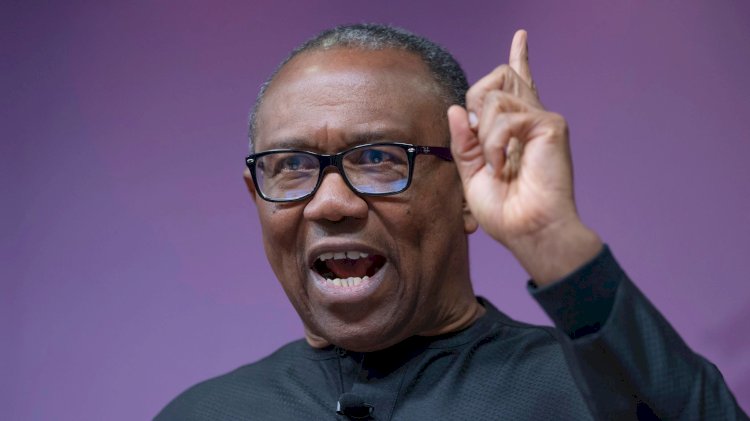Since 1993, Nigeria Still Searching For Credible Electoral System, Our National Destiny Uncertain - Peter Obi

Peter Obi, the presidential candidate of the Labour Party (LP), has lamented the state of Nigerian democracy, saying that Nigeria’s destiny has remained uncertain and precarious while its democracy is in deep trouble. Obi, who came third in the February 25 presidential election, according to the Independent National Electoral Commission (INEC), said this in his June 12 Democracy Day celebration message.
The former Governor of Anambra State in the South East region said it was regrettable that Nigeria was now in an era where foundational pillars of democracy are undermined by prevalent impunity and pervasive violence and bloodletting. Obi lamented that Nigeria lacked selfless leaders committed to national interest, sustainable development and innovative thinking that offers every Nigerian freedom of choice of abode, protection of lives and property and ordered liberties.
Lamenting that the trust deficit between the leaders and Nigerians had continued to deepen, Obi said, June 12 is marked in our dear country as Democracy Day. It is a historic day that deserves to be celebrated. On that day in 1993, we the people of Nigeria stated our unreserved preference for true democracy. Though under military rule, we freely chose a transparent voting method. Our votes reflected our true choice as a people.
Our choice on that day defied divisions of ethnicity, religion and region. It is these qualities that added up to make June 12 special in our search for true democracy.
Our collective choice of late Chief M. K.O AbIola as a worthy leader for the nation was saluted by Nigerians and governments and peoples across the world. Therefore, June 12 underpins our long collective journey to nationhood as a true democracy.
However, the current state of our politics tells a different story. Our democracy is deeply troubled while our nation’s destiny remains uncertain and precarious. We remain a nation in search of solutions to too many basic problems. One of these is the search for a credible electoral system that would command the trust, confidence and belief of all Nigerians just like June 12 did.
We should, therefore, use the commemoration of June 12 as an occasion to return to the true virtues of a truly democratic nation. We achieved that feat on June 12, 1993. In the spirit of June 12, therefore, we need to emplace an electoral system that commands the trust of the people. This is in recognition of the tenets and core values of democracy, which rests on respect for the wishes of the people as expressed in their ballots.
Above all, the government must respect and protect the institutions of the democratic state by respecting the social contract with the people by meeting their needs, obeying their wishes and fulfilling the responsibilities of responsible governance as contained in the constitution. A cardinal responsibility of the government in this regard is respect for the rule of law.
Regrettably, we are now in an era where these foundational pillars of democracy are undermined by prevalent impunity and pervasive violence and bloodletting. The trust deficit between the leaders and Nigerians continues to expand. The deficits of trust and efficiency in our last elections demonstrate this malady quite boldly. The challenge of June 12 and a dedicated Democracy Day is to inspire us to correct the errors of our recent elections.
This is the surest way to restore the confidence of our people in the future of our nation and the promise of true democracy. I however urge us all not to lose faith in the inbuilt design of our democratic system to self-correct. Personally, I remain committed and convinced that a New Nigeria is POssible. Our aspiration for a nation of equity, justice, security and peace can hardly be utopia.
We are a nation blessed richly with human and natural resources. What we lack are selfless leaders who are committed to national interest, sustainable development and innovative thinking that offers every Nigerian irrespective of ethnicity, religion or social strata, the freedom of choice of abode, and protection of lives, property and ordered liberties.
